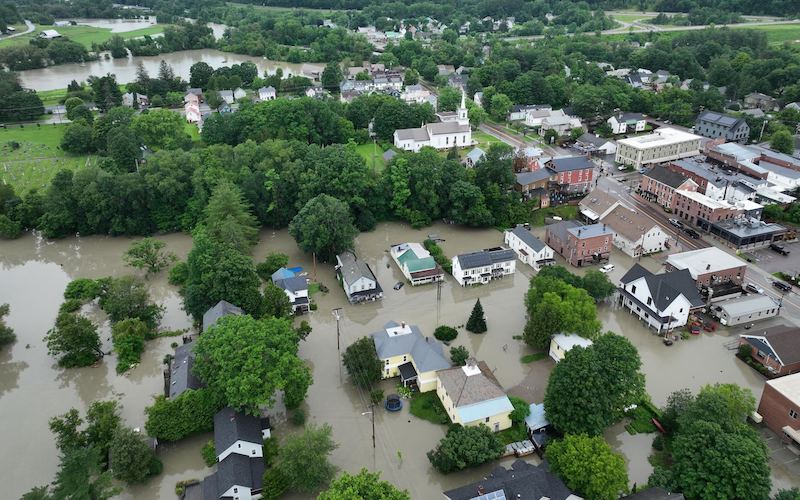
A climate superfund can help clean up communities like Montpelier, Vermont, one of many towns flooded in torrential rains that hit the state in 2023. Photo: Vince Franke
January 3, 2025 (Montpelier, VT) – The fossil fuel industry is challenging a first-of-its-kind law meant to protect the wallets of Vermont families and businesses who are currently paying to cleanup and repair damage after extreme storms caused by climate change. The American Petroleum Institute and the U.S. Chamber of Commerce filed a lawsuit in federal court challenging the Climate Superfund Act Vermont’s legislature passed in May 2024. Conservation Law Foundation (CLF) released the following statement in response.
“It’s no surprise the fossil fuel industry is trying to avoid accountability for the damage their products have caused in Vermont and beyond.” said Anthony Iarrapino, a Vermont-based lobbyist with CLF. “More states are following Vermont’s lead holding Big Oil accountable for the disaster recovery and cleanup costs from severe storms fueled by climate change, ensuring that families and businesses no longer have to foot the entire bill time and time again. CLF will continue to work toward the successful defense and full implementation of this landmark law.”
Currently, the federal Polluters Pay Climate Fund Act is stalled in Congress. States like Vermont and New York are taking action where the federal government is not. New York became the second state to enact a climate superfund law when Governor Kathy Hochul signed the legislation in December.
The Climate Superfund Act is modeled on the federal EPA Superfund program, which has helped clean up – at the polluters’ expense – over a thousand toxic waste sites across the country, including several in the Green Mountains. The legislation requires the largest fossil fuel companies to pay for a share of climate change costs proportional to their emissions attributable to their products and activities from 1995-2024.
CLF experts are available for further comment.
###
